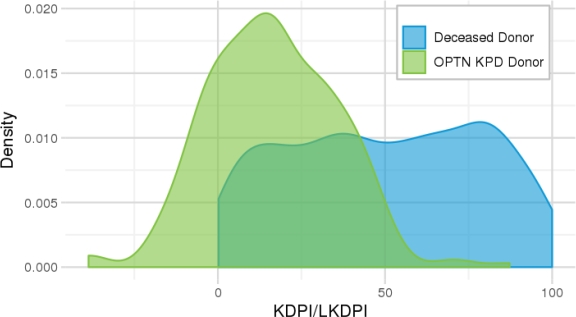Early Considerations for Deceased Donor Chains
1UNOS, Richmond, VA
2Carolinas HeathCare Sys, Charlotte, NC
3Univ Hosp Med Ctr, Cleveland, OH
4Carnegie Mellon Univ, Pittsburgh, PA
5Emory Univ, Atlanta, GA.
Meeting: 2018 American Transplant Congress
Abstract number: 448
Keywords: Allocation, Donation, Kidney, Kidney transplantation
Session Information
Session Name: Concurrent Session: Kidney Paired Exchange
Session Type: Concurrent Session
Date: Tuesday, June 5, 2018
Session Time: 2:30pm-4:00pm
 Presentation Time: 3:06pm-3:18pm
Presentation Time: 3:06pm-3:18pm
Location: Room 4B
Background: The potential use of deceased kidney donors (DDs) to initiate kidney paired donation (KPD) chains (DD chains) has been of interest to the transplant community, noted through published literature, inquiries to UNOS, and the June 2016 announcement of a military share pilot program. The OPTN Kidney Transplantation Committee created a DD chains work group to begin discussion about possible nationwide adoption of DD chains.
Methods: OPTN kidney transplant recipients (Aug 1-30, 2017), DDs (Aug 1-30, 2017), and waitlist candidates (Aug 30, 2017) were compared to the OPTN KPD program. Quality of DDs was compared to KPD donors using the published living kidney donor profile index (LKDPI). LKDPI uses the same scale as KDPI.
Results: While OPTN KPD donors were slightly older than DDs (median 44 vs 39), they were of higher quality (median 16 LKDPI vs 51 KDPI). Of unmatched paired donors in the OPTN KPD pool on Aug 28, 2017, only 27% were ABO O. The composition of donors who are matched and eventually donate mimics the DD population (ABO O 45% vs 47%). KPD recipients were more likely to be white (69% vs 38%) and have private insurance (52% vs 33%). Comparison of the waitlist revealed differences in characteristics related to allocation priority; 22% of KPD candidates were listed with CPRA 100% compared to 5% of non-KPD candidates.
Of unmatched paired donors in the OPTN KPD pool on Aug 28, 2017, only 27% were ABO O. The composition of donors who are matched and eventually donate mimics the DD population (ABO O 45% vs 47%). KPD recipients were more likely to be white (69% vs 38%) and have private insurance (52% vs 33%). Comparison of the waitlist revealed differences in characteristics related to allocation priority; 22% of KPD candidates were listed with CPRA 100% compared to 5% of non-KPD candidates.
Conclusions: Early discussion of DD chains has included many ethical considerations. KPD candidates have characteristics, such as high CPRA, which already provide them with elevated priority on the waitlist. The work group is discussing potential mechanisms for DD chains, such as whether kidneys should be allocated as a part of or outside of KAS, and how to maintain equitable access to the waitlist.
CITATION INFORMATION: Toll A., Leishman R., Casingal V., Aeder M., Sandholm T., Turgeon N. Early Considerations for Deceased Donor Chains Am J Transplant. 2017;17 (suppl 3).
To cite this abstract in AMA style:
Toll A, Leishman R, Casingal V, Aeder M, Sandholm T, Turgeon N. Early Considerations for Deceased Donor Chains [abstract]. https://atcmeetingabstracts.com/abstract/early-considerations-for-deceased-donor-chains/. Accessed February 21, 2026.« Back to 2018 American Transplant Congress
